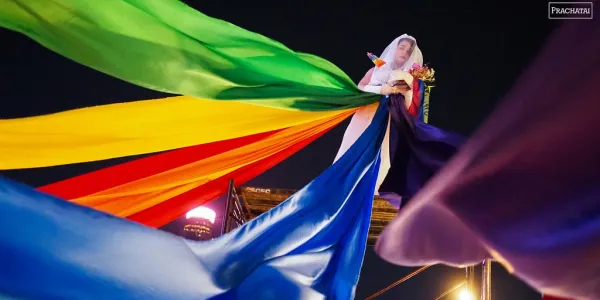By Human Rights Watch |
<p>Transgender people in Thailand have no route to legal recognition of their gender identity, making them vulnerable to various forms of discrimination, Human Rights Watch said in a report released today with the Thai Transgender Alliance.</p>
By Kritsada Subpawanthanakun |
<div>
<div>The Gender Equality Act of 2015 was enacted by the junta almost three years ago now. Although the name is seemingly progressive and rosy, one of its articles contains a worrying loophole that states that actions implemented for national security or religious purposes do not constitute gender discrimination.</div>
</div>
<div>
</div>
<p>Despite being viewed by outsiders as one of the most LGBTI friendly nations on earth, research findings reveal that almost half of LGBTI respondents have experienced forms of discrimination.</p>
<p>Citing further legal protections for LGBT people, the Thai authorities have introduced a bill to ‘certify’ gender identity. LGBT experts, however, have asked why they need the state to approve their gender identity at all.</p>
<p>On 14 March 2017, leading LGBT activists and legal officers from the Office of Women’s Affairs and Family Development (OWAFD) under the Ministry of Social Development and Human Security gathered at a public forum to discuss the Gender Certification Bill drafted by OWAFD.</p>
<div>The junta-appointed parliament has passed the 2015 Gender Equality Act. The law imposes a jail term of up to six months for anyone committing gender discrimination.</div>
<div> </div>
<div>The latest version of the law, announced in the Royal Gazette on 8 March, has removed controversial elements which upheld exceptions for gender discrimination in three situations where equality was not mandated. These exceptions were education, religion and the public interest.</div>
<div> </div>
<div>The law will be enacted in August.
</div>

